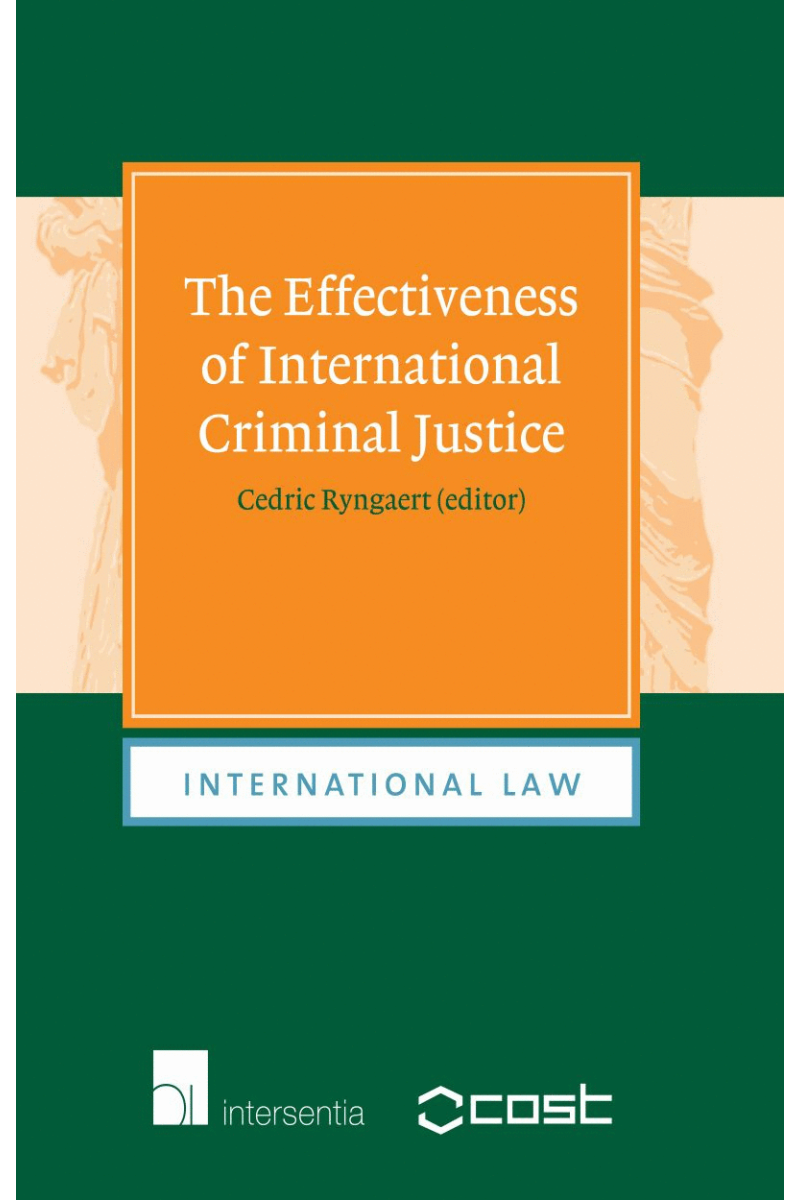 maestro
mastercard
visa
maestro
mastercard
visa

The Effectiveness of International Criminal Justice

This edited volume ascertains the added value of international criminal tribunals in fighting impunity for crimes against international law and fostering political reconciliation in affected States. It aims to identify best practices which may inform the choice between the establishment of international criminal tribunals and recourse to other mechanisms, and which may render existing or future tribunals more effective institutions.
A first part analyzes how such tribunals, if the international community decides to establish them, could be effective institutions. Obviously, the tribunals’ conduct of their own legal proceedings, within their mandate, may go a long way to make the tribunals effective mechanisms of post-conflict justice (e.g. prosecutor’s choice of suspects, outreach, human rights protection, victims’ participation…). It will be argued, however, that effectiveness will, in fact, for a large part depend on factors outside the tribunal’s control, such as the presence of the right political parameters and the financial, logistical, and other support of States.
A second part of the volume contrasts international criminal justice with other judicial or political mechanisms aimed at dispensing justice or reconciling communities. An answer will be sought to the question whether national, as opposed to international justice avenues, amnesties for grave crimes, or restorative justice mechanisms (reparations, housing restitution) could sometimes be more effective than international criminal tribunals.
With contributions by: Erik André Andersen, Mikaela Heikkilä, Masha Fedorova, Sten Verhoeven, Jan Wouters, Brianne McGonigle, Sudeshna Basu, Inneke Osea, Louise Mallinder, Peter Malcontent and Antoine Buyse.
“[…] the choice of topics addressed and the book’s approach are very interesting. One can be delighted with this contribution on international criminal law at a time when international criminal justice is on a quest for its identity.”
-- Iryna Grebenyuk in RSC – Revue de science criminelle et de droit pénal comparé (2010) 510.
“[This] book engages some of the most complex theoretical and practical deficiencies in international criminal justice and addresses them, on the whole, with admirable intellectual integrity. … The contributors eke out each strand of [the] debates and unravel the arguments. …It is this nuanced engagement with extremely complex and emotive topics that puts this book in the centre of the transitional justice dialogue. … It integrates detailed analysis within the broad landscape of some of the most pressing questions in international criminal justice; and it asks the questions which many who work and study in this field tend to ignore. The book is a pivotal tool in not only understanding some of the more contentious issues in the efficacy of international criminal justice; it is also an important base for ensuring that international criminal justice not only exists but is also a powerful and effective tool in the pursuit of justice.”
-- Bonita Meyersfeld in 2011 SAJHR 374
| Type of product | Book |
|---|---|
| Format | Paperback |
| EAN / ISSN | 9781839702662 |
| Series name | International and European law |
| Weight | 600 g |
| Status | Available |
| Number of pages | xxvi + 280 p. |
| Access to exercice | No |
| Publisher | Intersentia |
| Language | English |
| Publication Date | Aug 17, 2009 |
| Available on Jurisquare | No |
| Available on Strada Belgique | No |
| Available on Strada Europe | No |
| Available on Strada Luxembourg | No |
Downloads
- Table of Contents and Preliminary Pages
- PART I. Making International Criminal Tribunals Work
- The International Military Tribunals in Nuremberg and Tokyo – Epoch-making and standard-setting, yet with different effectiveness
- The Balanced Scorecard of International Criminal Tribunals
- Safeguarding the rights of suspects and accused persons in international criminal proceedings
- Apples and Oranges? Victim participation approaches at the ICC and ECCC
- The Creation of a Global Criminal Justice System: The European Union and the International Criminal Court
- PART II. Fostering Peace, Human Rights and Security Through Complementary Judicial or Political Mechanisms
- The Principle of Complementarity: a Means of Ensuring Effective International Criminal Justice
- The Legacy of the ICTR In Rwanda in the Context of the Completion Strategy: The Impact of Rule 11Bis
- The Role Of Amnesties In Conflict Transformation
- Financial Compensation for Victims of International Crimes as a Political Process
- The Other Path to Peace: Restitution as a Method to Undo Past Injustice